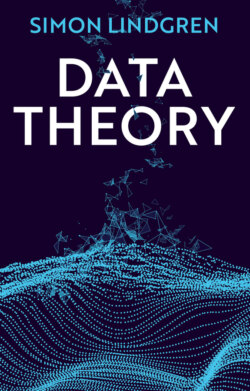Читать книгу Data Theory - Simon Lindgren - Страница 13
Breaking things to move forward
ОглавлениеFinding good solutions – rather than adhering to rules – should be the end goal of any analytical strategy. This draws on Feyerabend’s idea that anarchism in science, rather than ‘law-and-order science’, is what will help achieve progress. And, as for the risk that such an approach will lead to an unproductive situation where anything goes, we must simply trust in our own ability to think in structured ways even without following rigid rules dogmatically:
There is no need to fear that the diminished concern for law and order in science and society that characterizes an anarchism of this kind will lead to chaos. The human nervous system is too well organized for that.
(Feyerabend, 1975, p. 13)
In order to think creatively and freely in relation to existing approaches, we must allow ourselves not to think so much about which theoretical perspectives have been conventionally agreed to be compatible with one another, or about whether it is officially correct to mix certain methods together or not. In that sense, the approach that I am proposing can be metaphorically understood as a form of hacking. Because, in spite of its popular reputation to the contrary, hacking is not (only) about breaking the law through forms of electronic vandalism. As argued by cryptologist Jon Erickson (2008), hacking can in fact even be more about adhering to rules than about breaking them. The goal of hacking is to come up with ways of using, or exploiting, the structures and resources that are in operation in any given situation in ways that may be overlooked or unintended. Hacking is about applying existing tools in smart and innovative ways to solve problems. Erickson writes that:
hacked solutions follow the rules of the system, but they use those rules in counterintuitive ways. This gives hackers their edge, allowing them to solve problems in ways unimaginable for those confined to conventional thinking and methodologies.
(Erickson, 2008, p. 16)
Datafication presents us with a new data environment – with data traces, data fragments, and unsolicited data – that offers the opportunity to think in new ways about research in the ‘spirit of hacking’, aiming to surmount ‘conventional boundaries and restrictions’ for the goal of ‘better understanding the world’ (Erickson, 2008, pp. 16–18). What I describe here as anarchistic, and as hacking, may sound radical and dangerous – or maybe just plain stupid. But as a matter of fact, this approach is not very far from how science, as conceived by Bruno Latour, in general comes into being. Science and research happen in action. They are not ready made. Interest should not be focused on any alleged intrinsic qualities of approaches, but on the transformations that they undergo in their practical use. Methods do not have any ‘special qualities’, as their effects come from the many ways through which they are ‘gathered, combined, tied together, and sent back’ (Latour, 1987, p. 258). Thus, ‘we are never confronted with science, technology and society, but with a gamut of weaker and stronger associations’ (Latour, 1987, p. 259). Knowledge about society is produced through more or less messy sets of practical contingencies.
